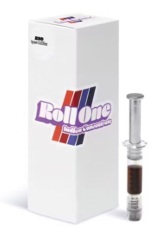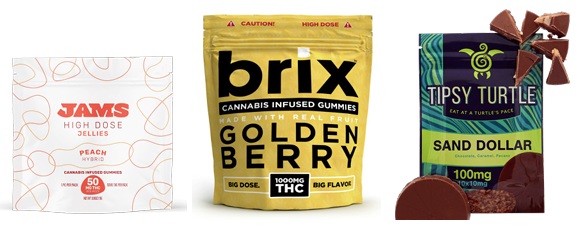Trulieve Facing Class Action Lawsuit Over THC Content in Dispensary’s Edibles
Watt v. Trulieve Holdings, Inc. et al.
Filed: March 21, 2025 ◆§ 2:25-cv-00962
A class action accuses Trulieve of marketing and selling edible marijuana-infused products with THC levels that exceed legal limits in Arizona and Florida.
Trulieve Holdings, Inc. Trulieve Cannabis Corp. Harvest Dispensaries, Cultivations & Production Facilities LLC Svaccha, LLC High Desert Healing, LLC Medical Pain Relief, Inc. Sherri Dunn, LLC Pahana, Inc. Nature Med, Inc. Sweet 5, LLC Green Desert Patient Center of Peoria, Inc. Ad, LLC Kwerles, Inc. Mohave Valley Consulting, LLC Abedon Saiz, LLC Byers Dispensary, Inc. Green Sky Patient Center of Scottsdale North, Inc. Cochise County Wellness, LLC The Giving Tree Wellness Center of Mesa, Inc. Fort Mountain Consulting, LLC Patient Care Center 301, Inc. Purplemed, Inc.
Arizona
A proposed class action lawsuit accuses Trulieve of marketing and selling edible marijuana-infused products with tetrahydrocannabinol (THC) levels that exceed legal limits in Arizona and Florida.
Get the latest open class action lawsuits sent to your inbox. Sign up for ClassAction.org’s free weekly newsletter.

The 42-page lawsuit centers on Trulieve’s sale of marijuana edibles and edible marijuana oil products, including Rick Simpson oil and full spectrum hash oil. According to the case, Trulieve’s dispensaries sell ingestible oil products under brand names such as Roll One and Momenta, available in 300-milligram, 500-milligram, 1-gram and 2.5-gram syringes or “Dablicators.” The lawsuit argues that these products contain THC at levels well above the legally allowed limit of 100 milligrams per package in Arizona and 200 milligrams per package in Florida.
Similarly, Trulieve’s “macro dose” edibles—sold under brands such as JAMS Jellies, XBites, Tipsy Turtle and Brix—contain THC levels that exceed state-imposed per-package limits, the filing contends.
The class action suit alleges that Trulieve misleadingly markets its edible oil products as marijuana concentrates or extracts to deceive regulators and duck the per-package THC caps for marijuana-infused food items imposed by state law. Because concentrates are not subject to any per-package THC limits, the defendants have been able to sell “far more THC in a single Edible package than is allowed by law,” the complaint asserts.
Product listings on the Trulieve dispensary website characterize the edible oils as concentrates, meaning it is “nearly impossible for the average consumer to ascertain that the Edible Oils are actually Edible products that should be sold in far smaller quantities,” the filing contends.

Likewise, Trulieve’s gummies and other marijuana edibles are falsely advertised as appropriately dosed and legally compliant, the case claims.
“The listings do not in any way identify the products as being subject to the limitations imposed upon Edibles, that they exceed those limitations, or their status as unlawful marijuana products,” the suit charges.
As a result, consumers are misled into believing the items are legal and safe to use rather than improperly labeled edibles that contain “up to 10 times” the lawful per-package limit for THC, the Trulieve lawsuit alleges.
As the complaint tells it, standard packages of edibles typically contain 100 milligrams of THC, divided into 10 or more servings.
“By contrast, a single 1-gram syringe of the Edible Oils [Trulieve] sell[s] can contain as much THC as 10 standard Edible packages,” the filing says. “In other words, 1 gram of Edible Oils can contain as much THC as 100 standard servings of Edibles.”
The case claims that Trulieve’s deceptive conduct puts unwitting customers at risk of THC overconsumption and legal action for the possession of illegal products.
The lawsuit looks to represent all individuals who, within the applicable statute of limitations period, purchased allegedly illegal edibles from any Trulieve dispensary in Arizona, Florida or other similarly situated states.
Learn all about the legal process: What is a class action lawsuit?
Video Game Addiction Lawsuits
If your child suffers from video game addiction — including Fortnite addiction or Roblox addiction — you may be able to take legal action. Gamers 18 to 22 may also qualify.
Learn more:Video Game Addiction Lawsuit
Depo-Provera Lawsuits
Anyone who received Depo-Provera or Depo-Provera SubQ injections and has been diagnosed with meningioma, a type of brain tumor, may be able to take legal action.
Read more: Depo-Provera Lawsuit
How Do I Join a Class Action Lawsuit?
Did you know there's usually nothing you need to do to join, sign up for, or add your name to new class action lawsuits when they're initially filed?
Read more here: How Do I Join a Class Action Lawsuit?
Stay Current
Sign Up For
Our Newsletter
New cases and investigations, settlement deadlines, and news straight to your inbox.
Before commenting, please review our comment policy.